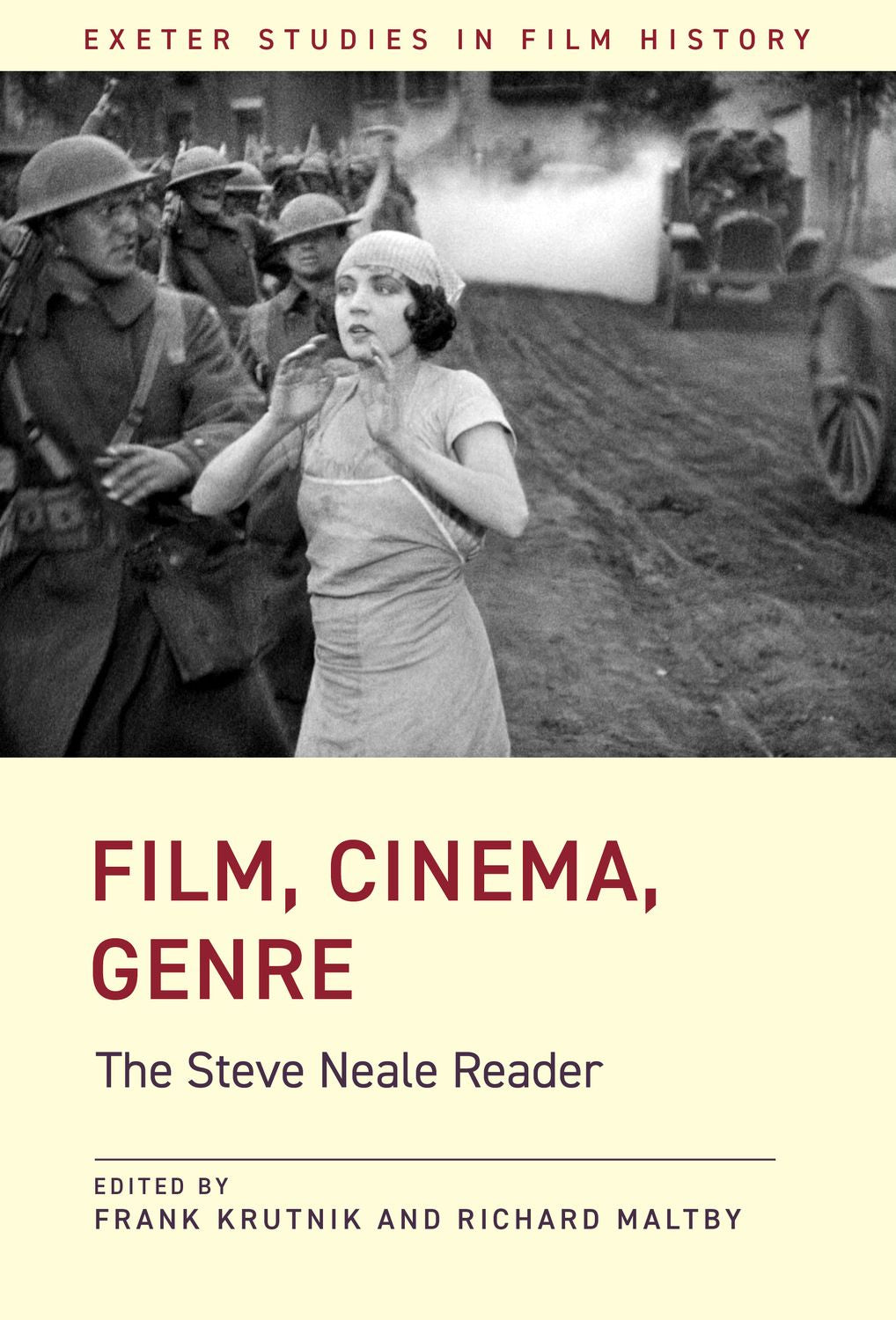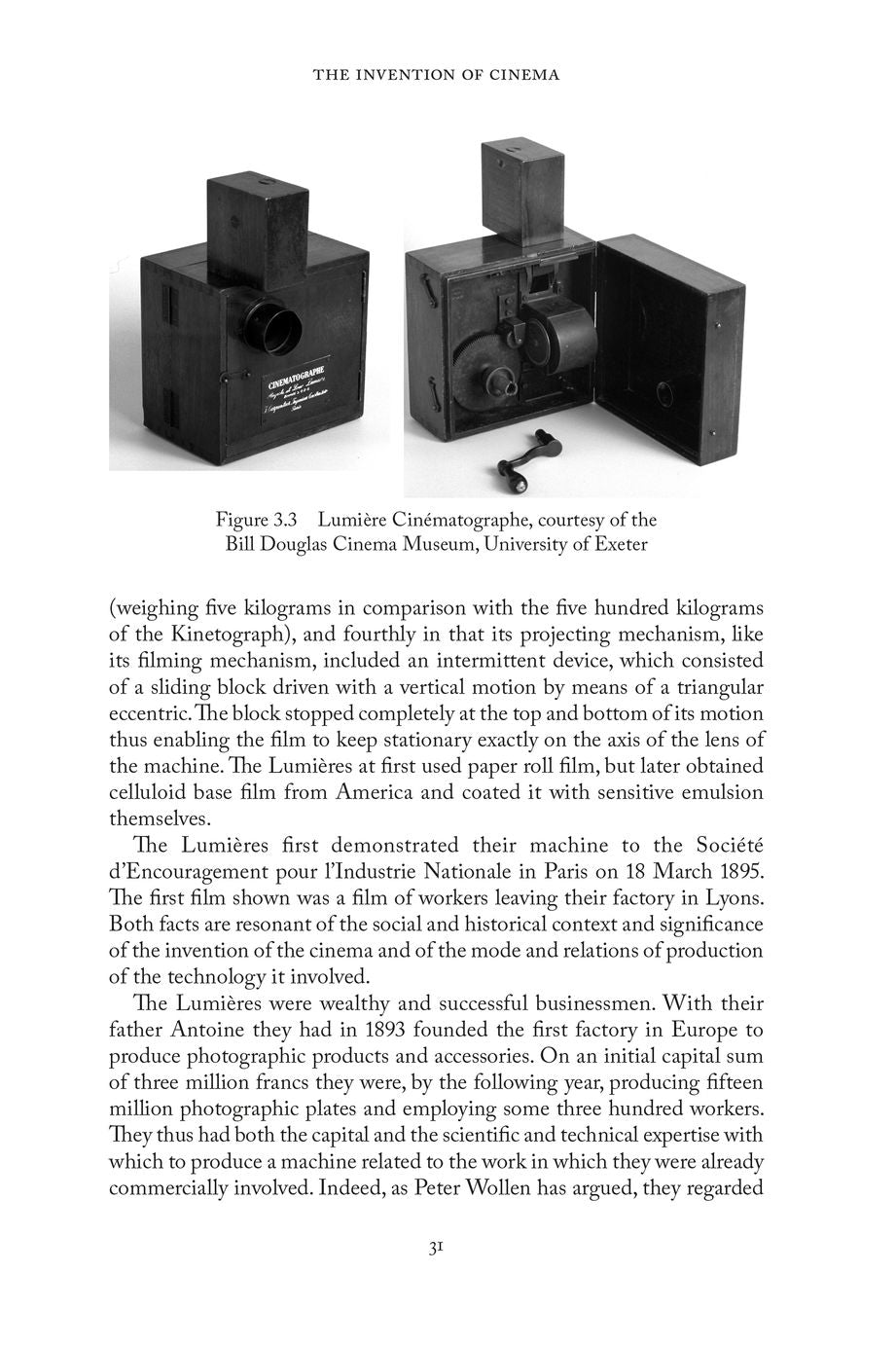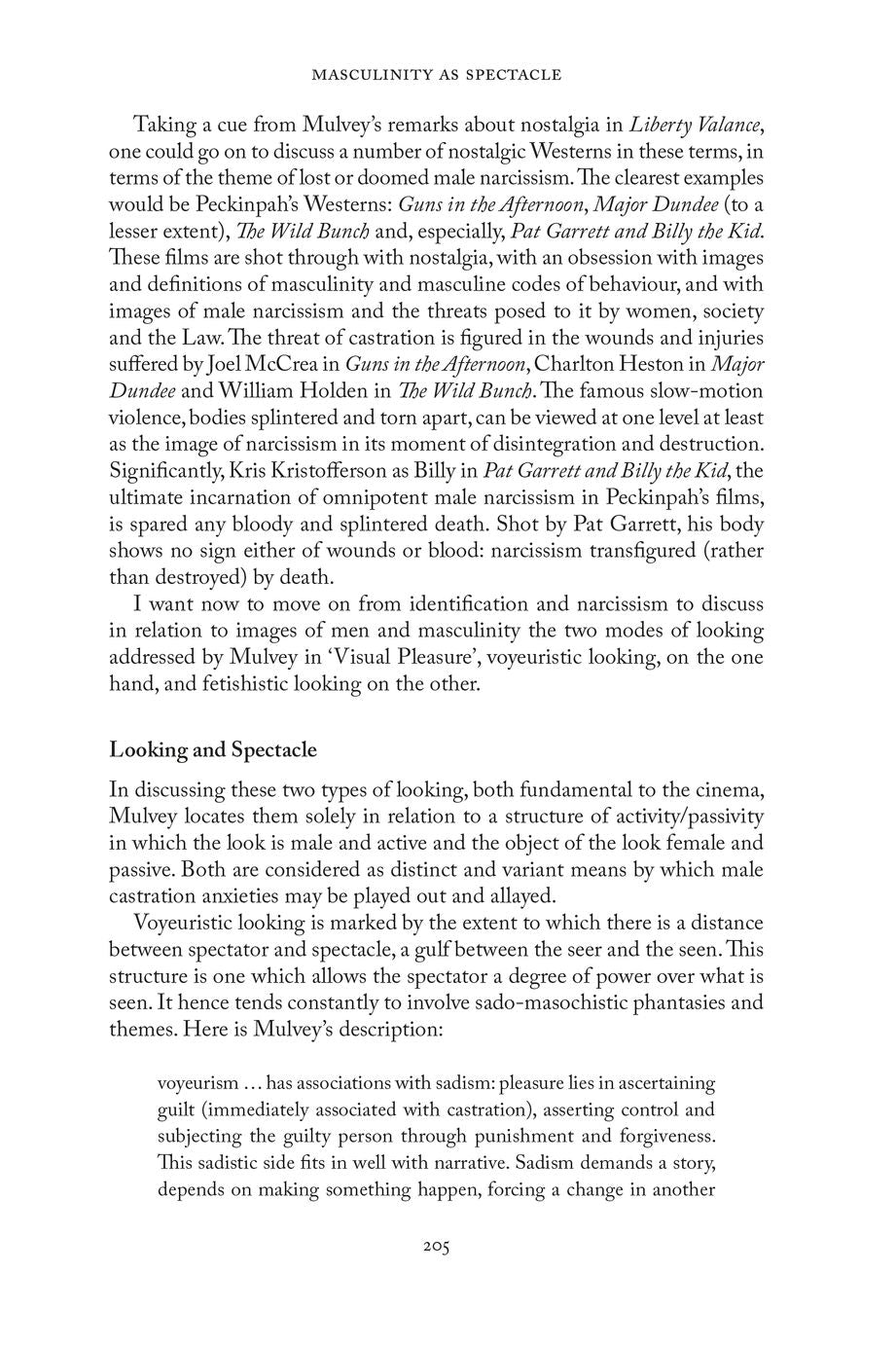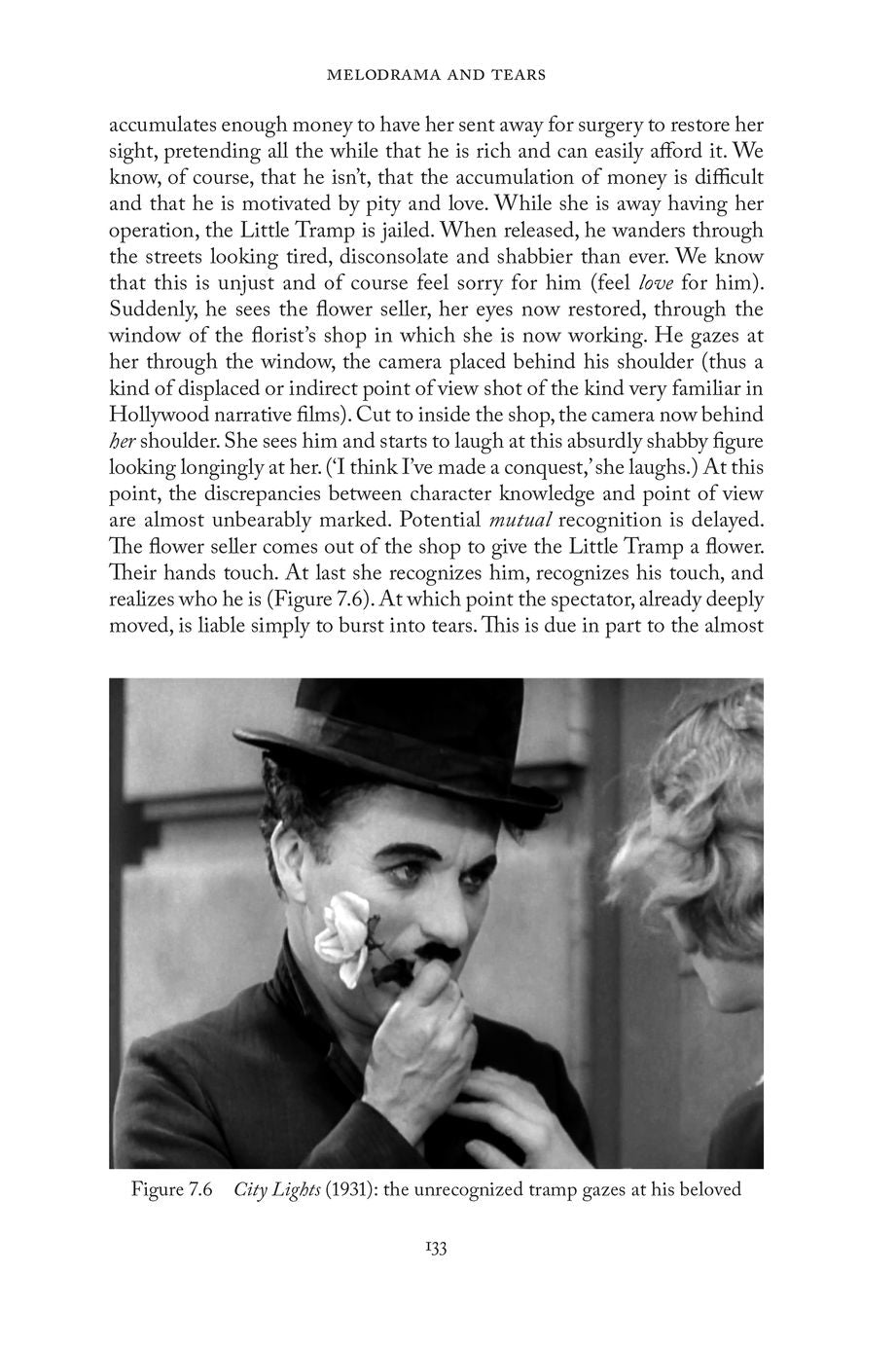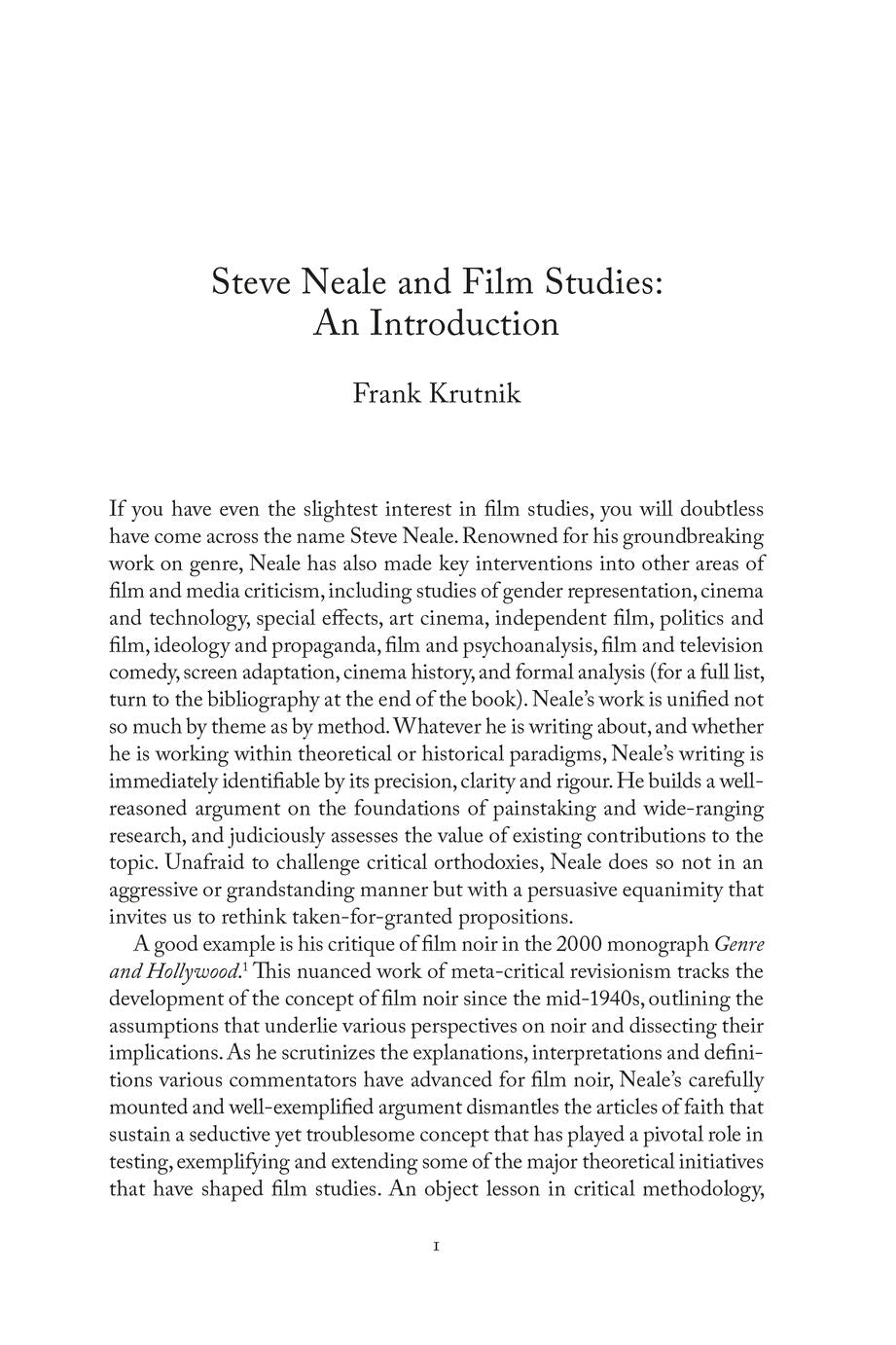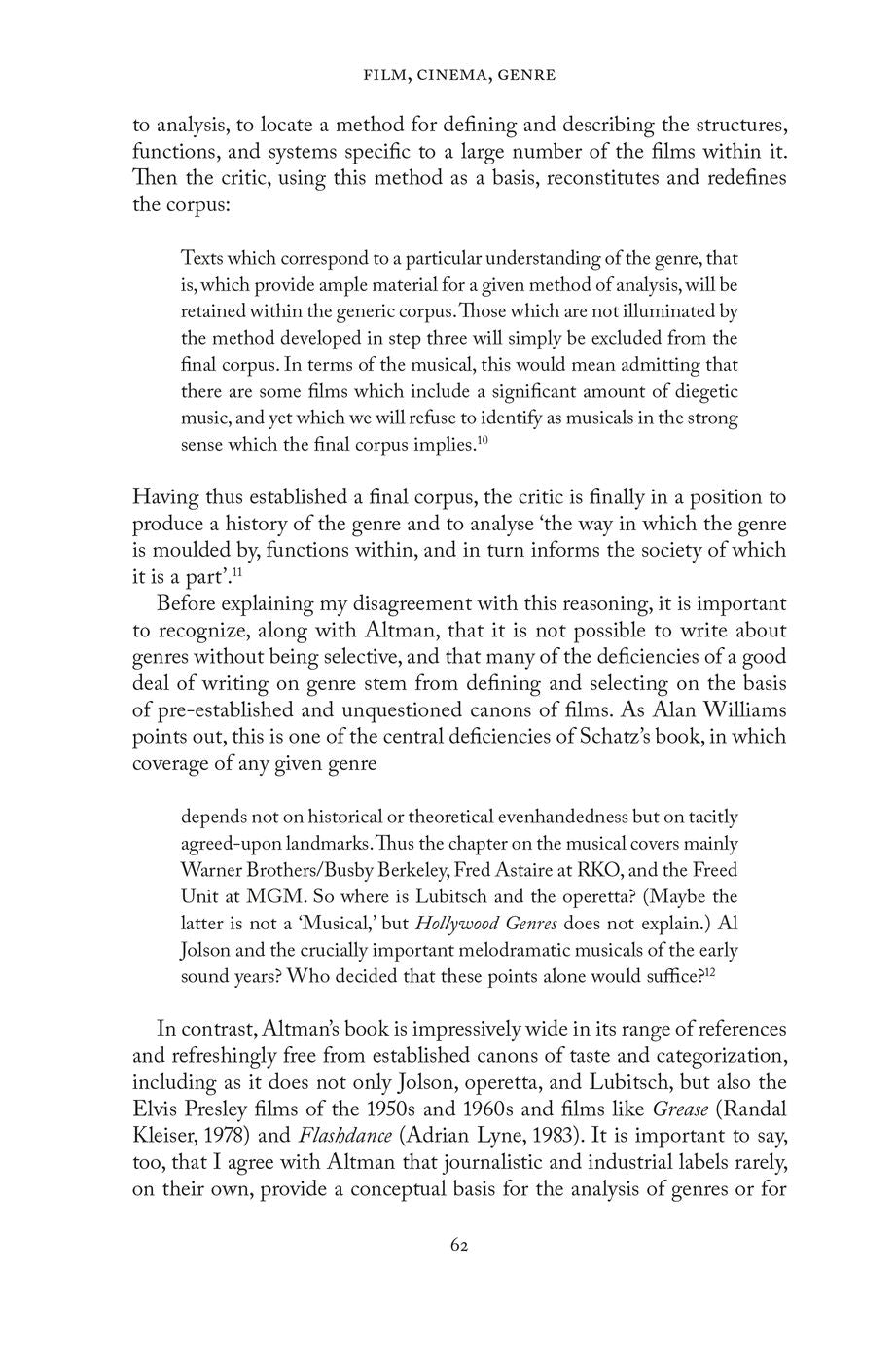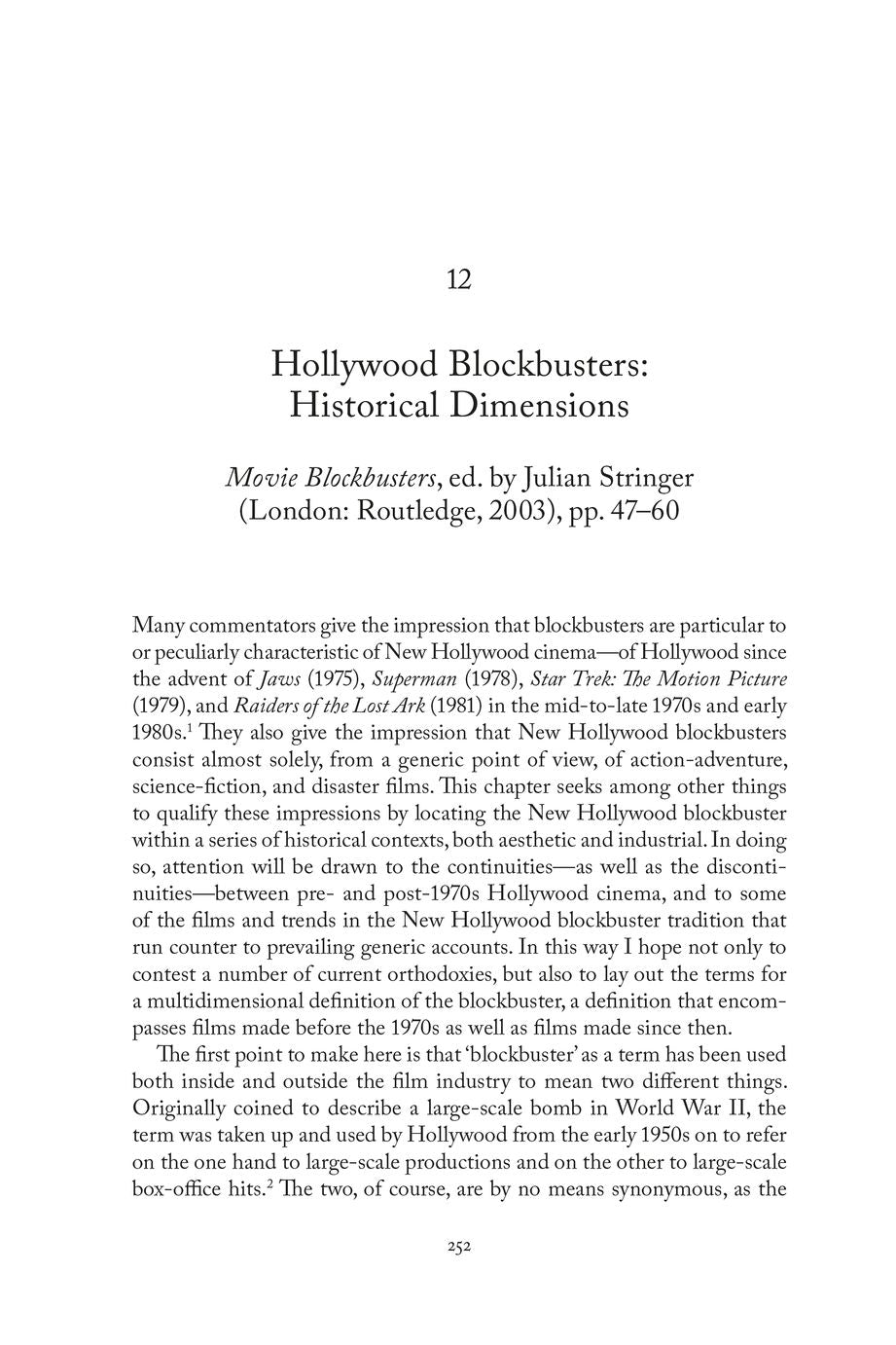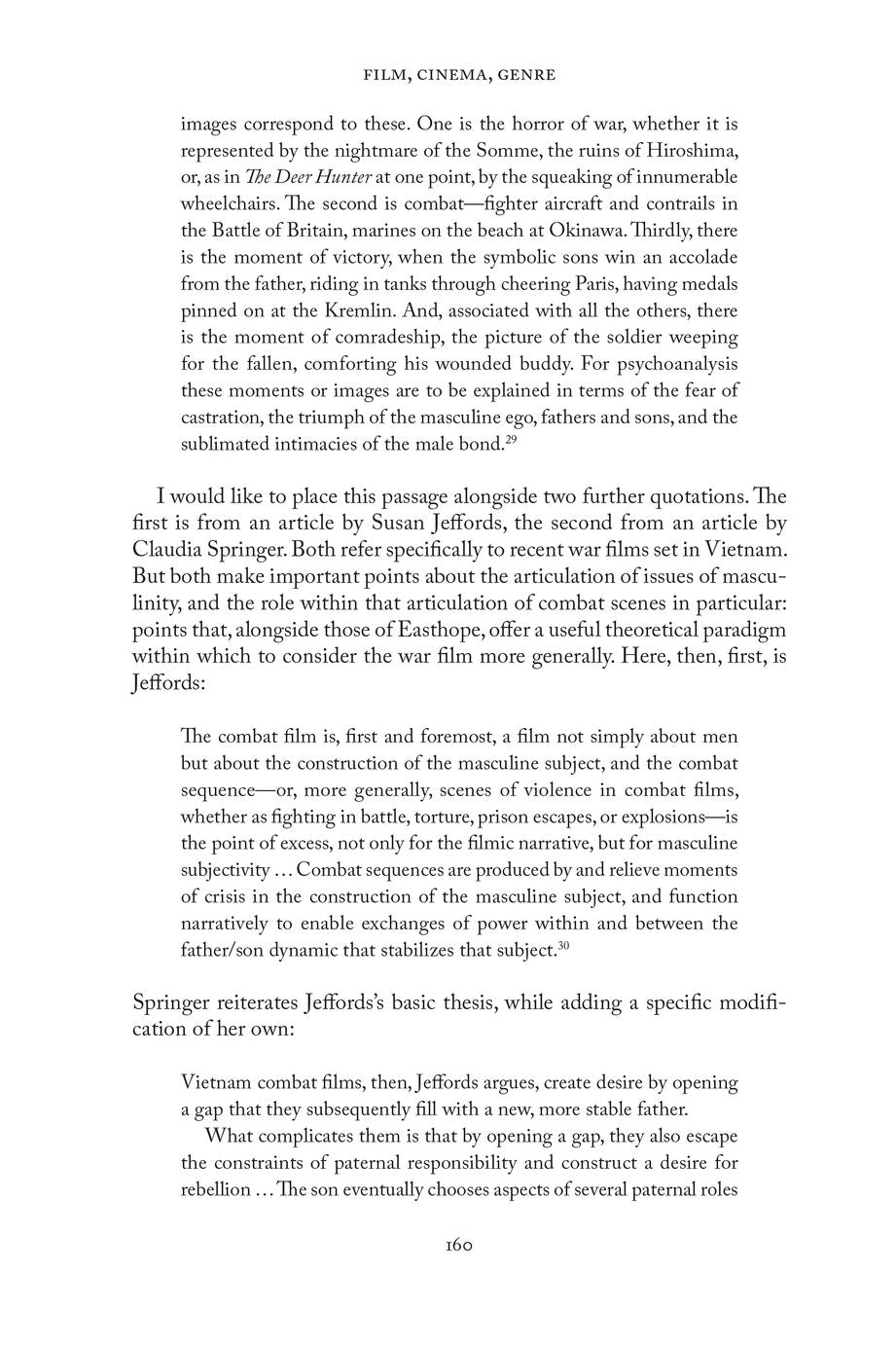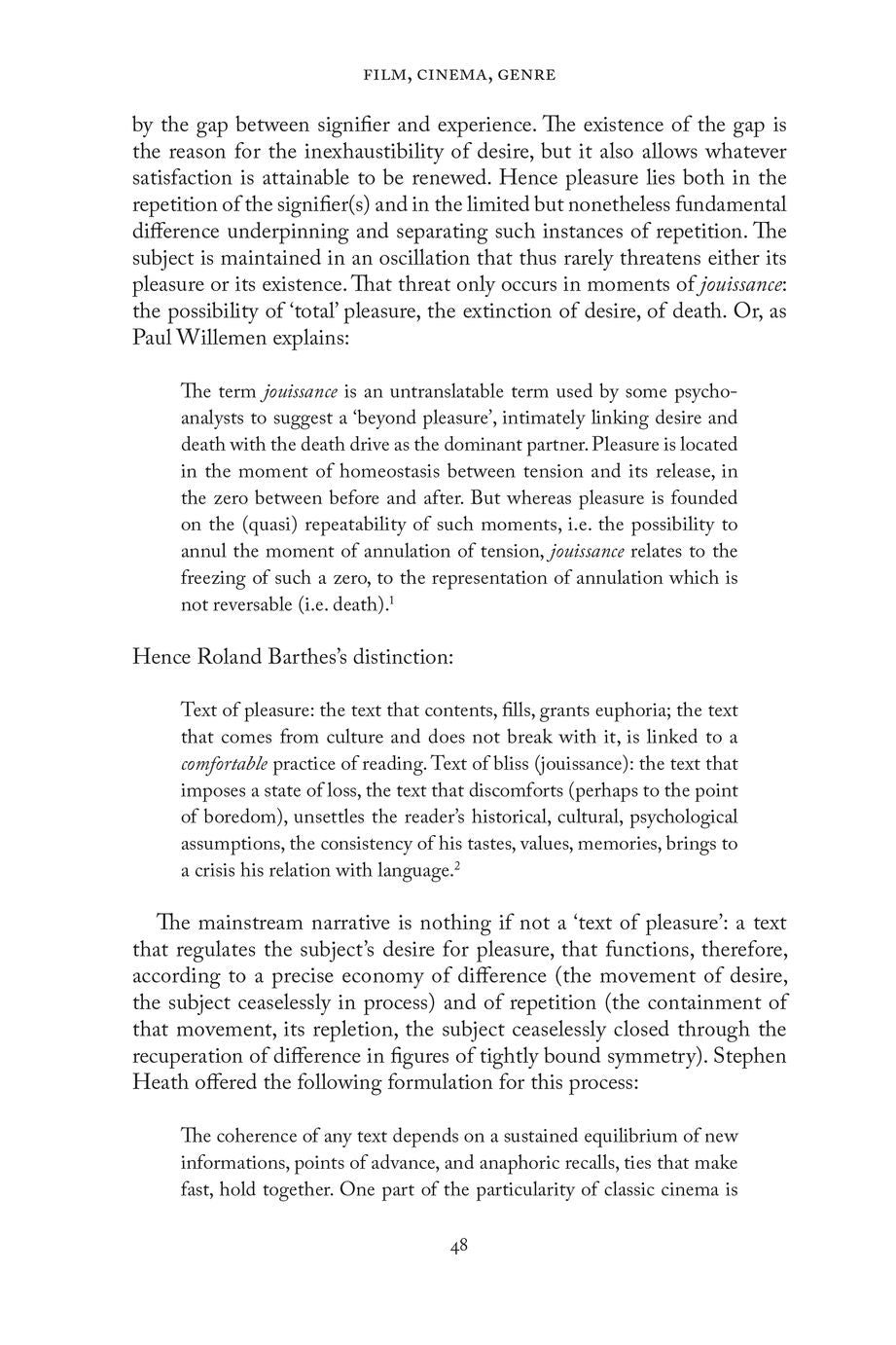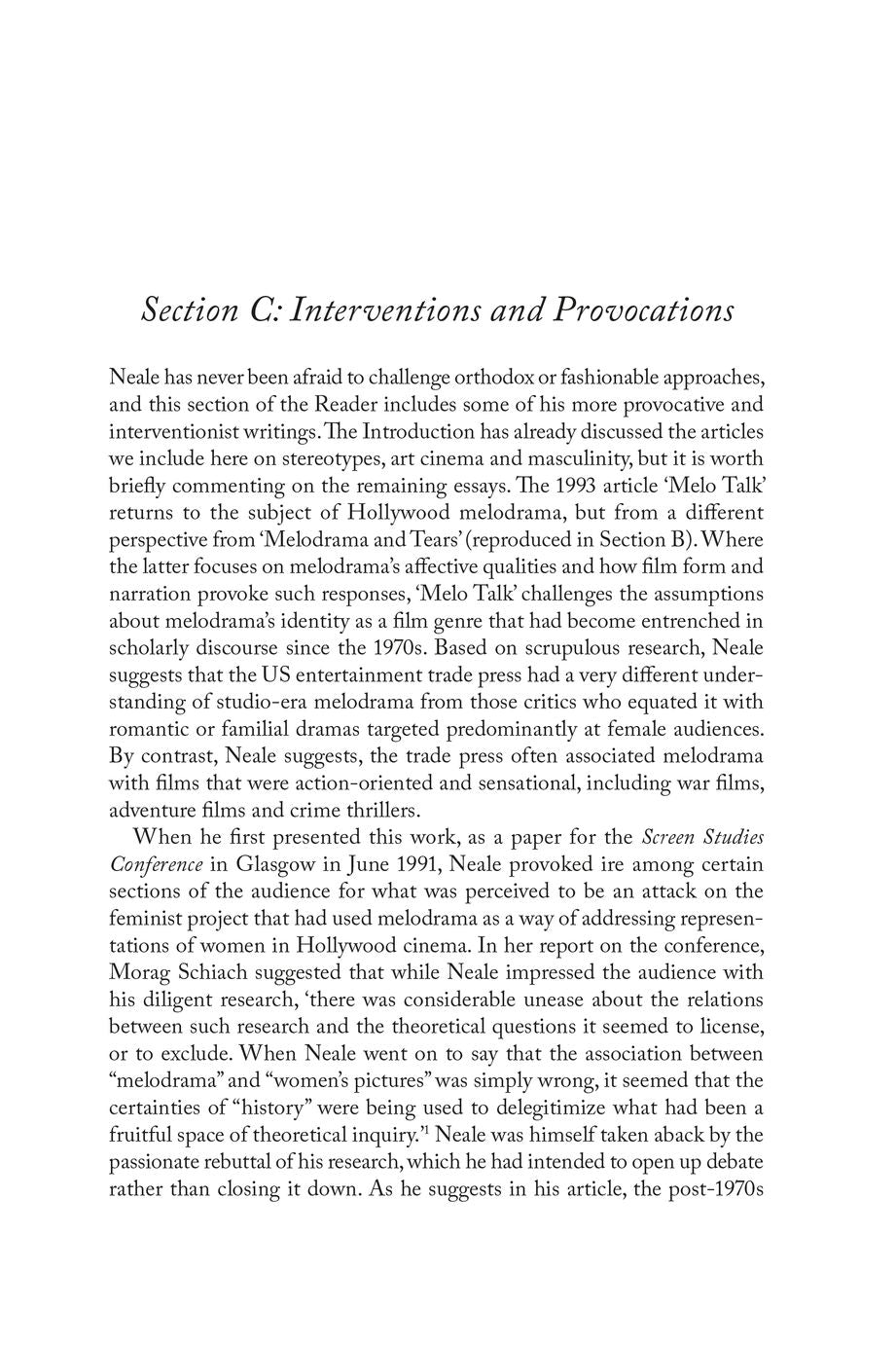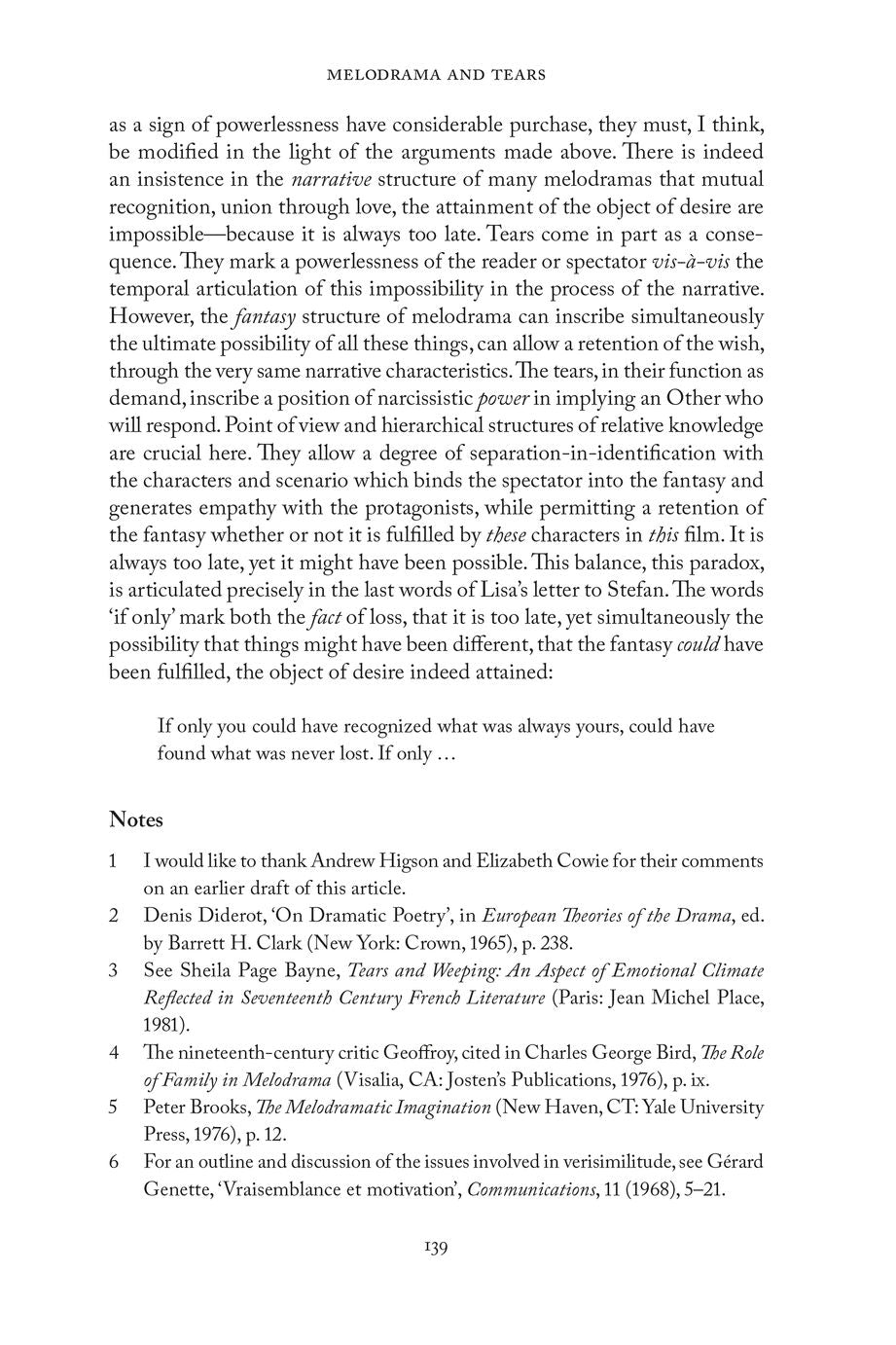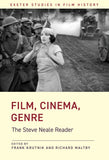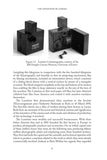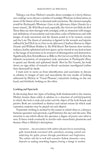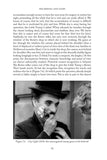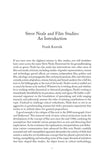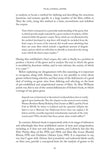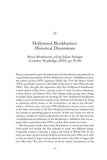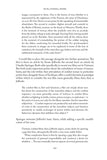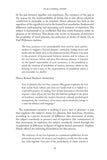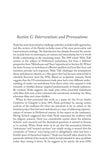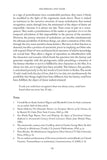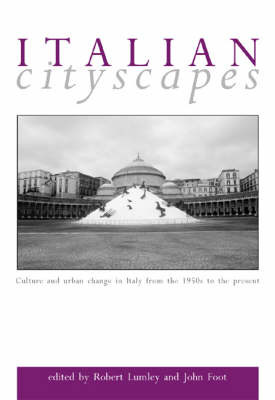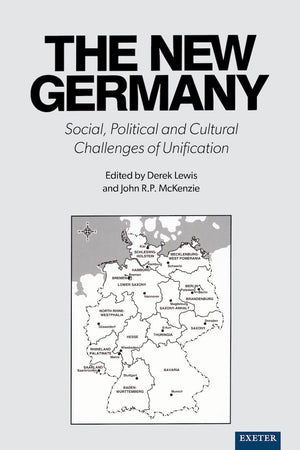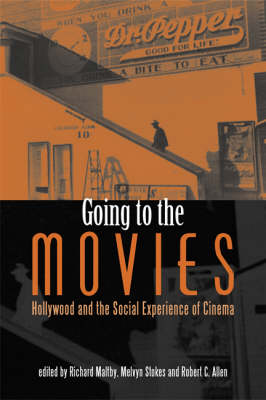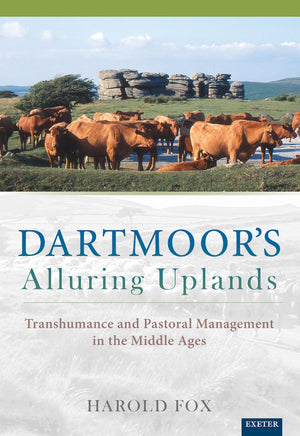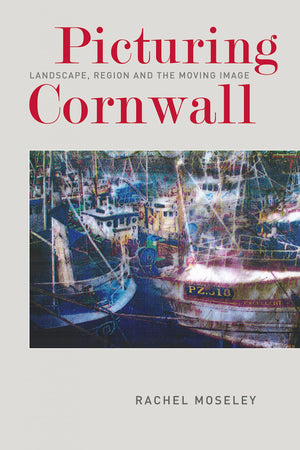University of Exeter Press
Film, Cinema, Genre
The Steve Neale Reader
Couldn't load pickup availability
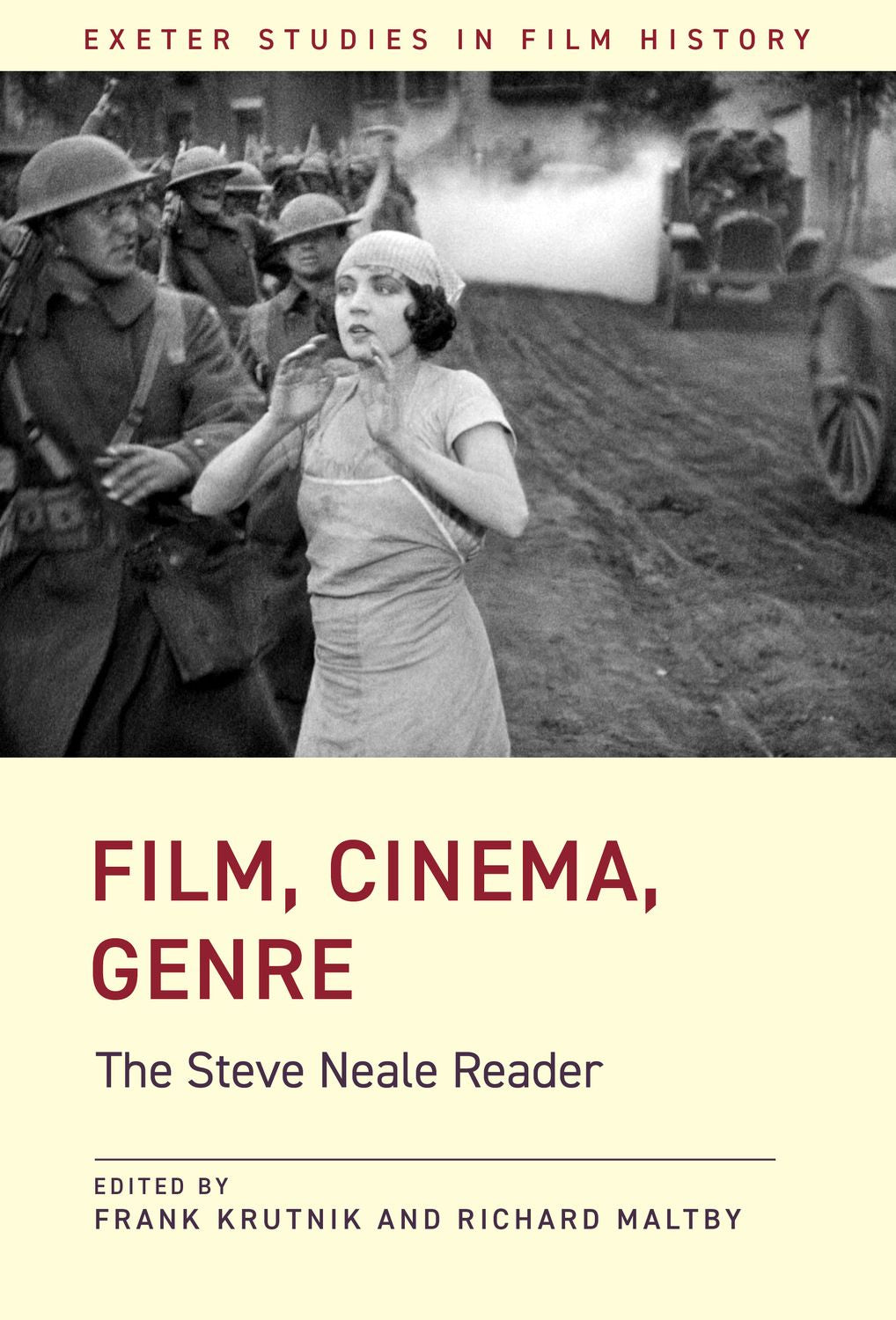
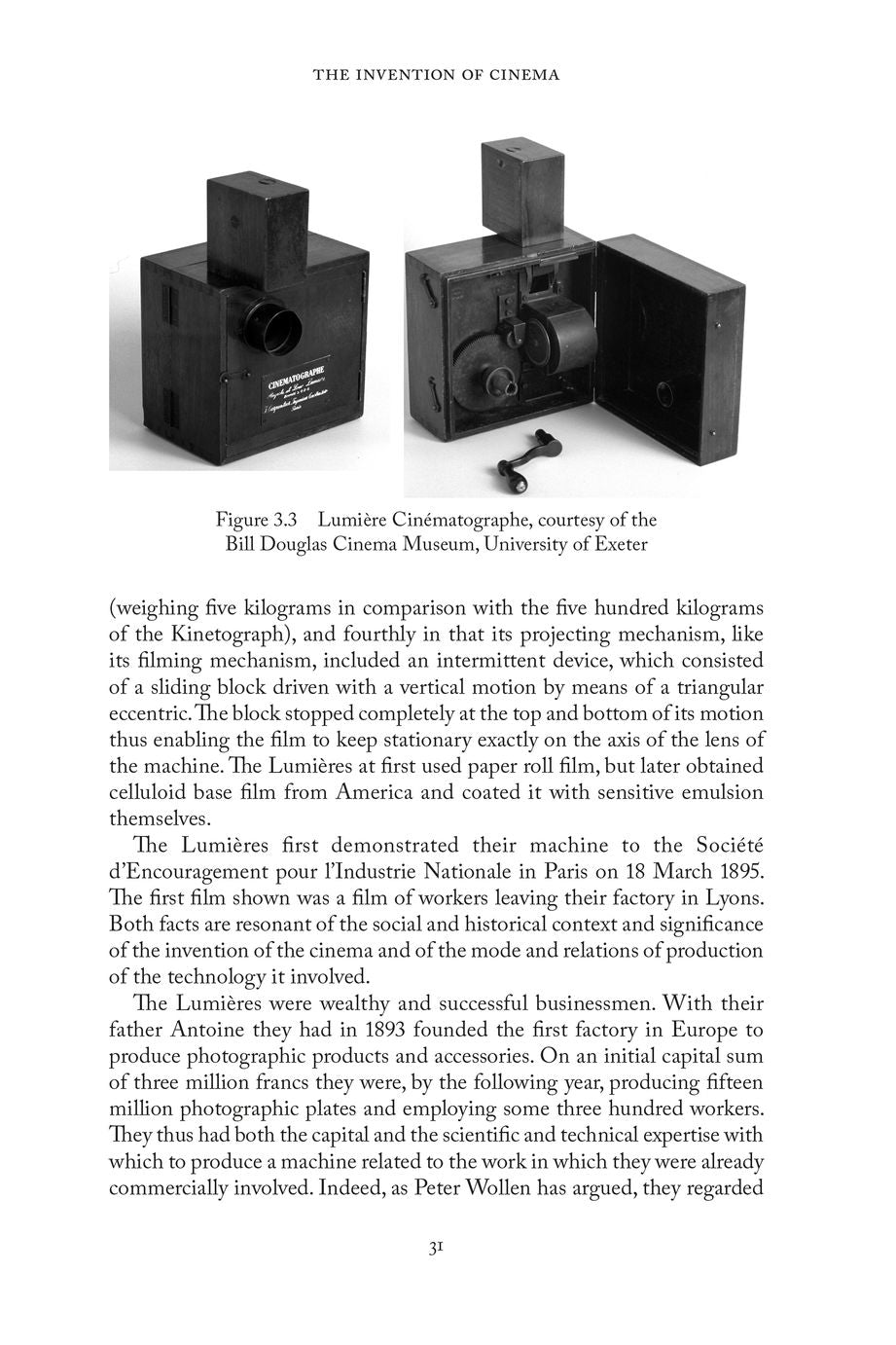

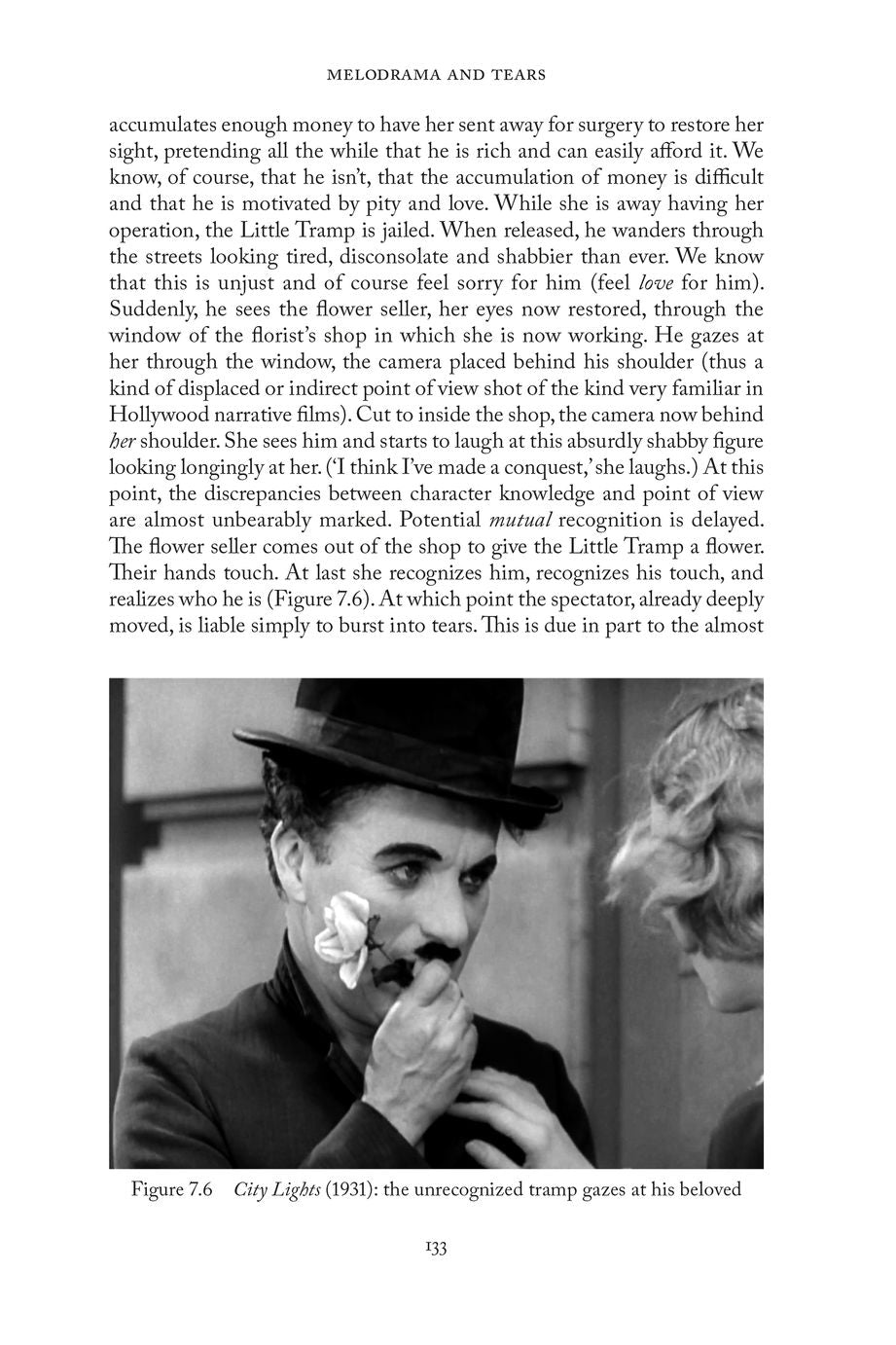
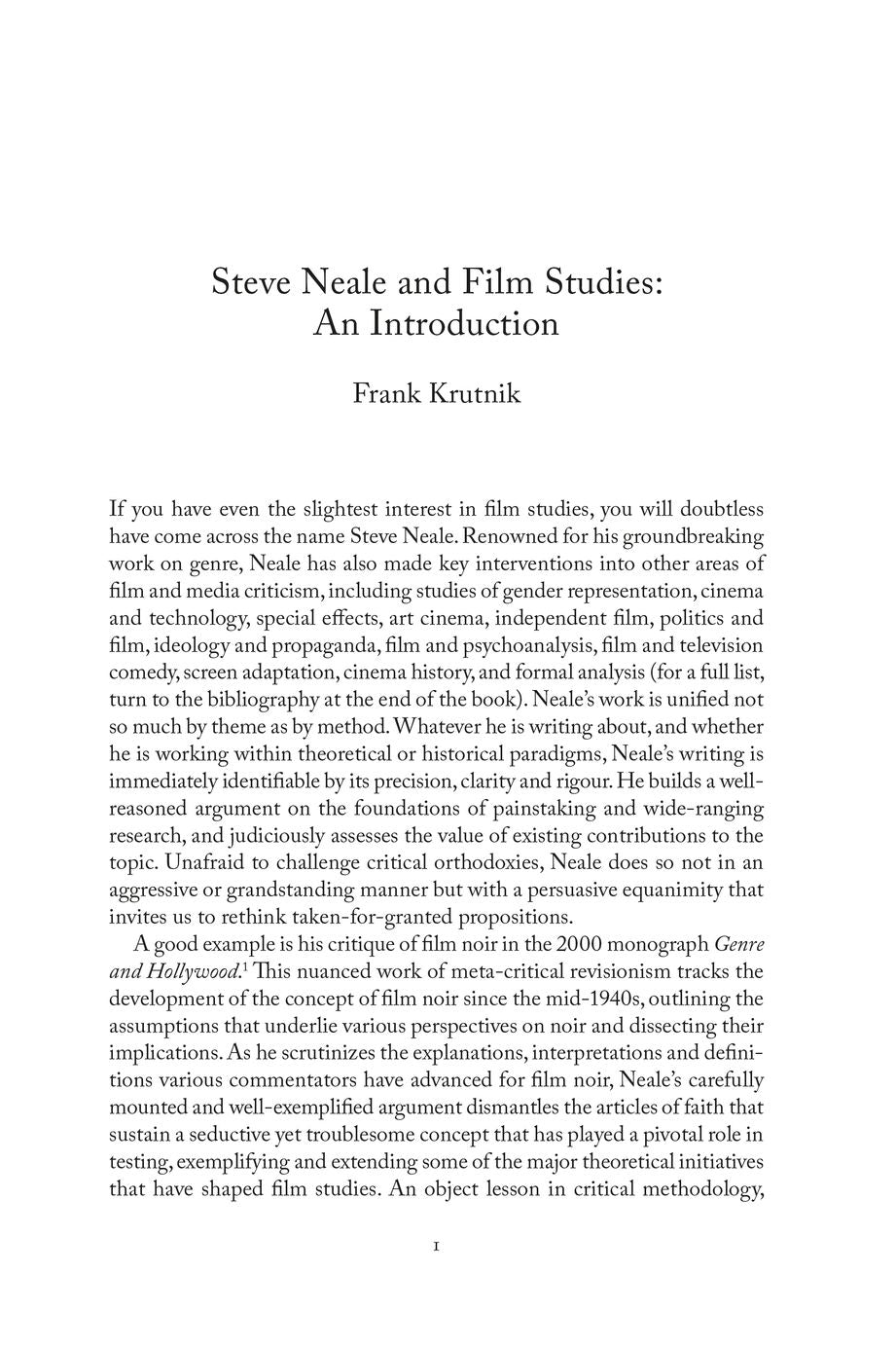
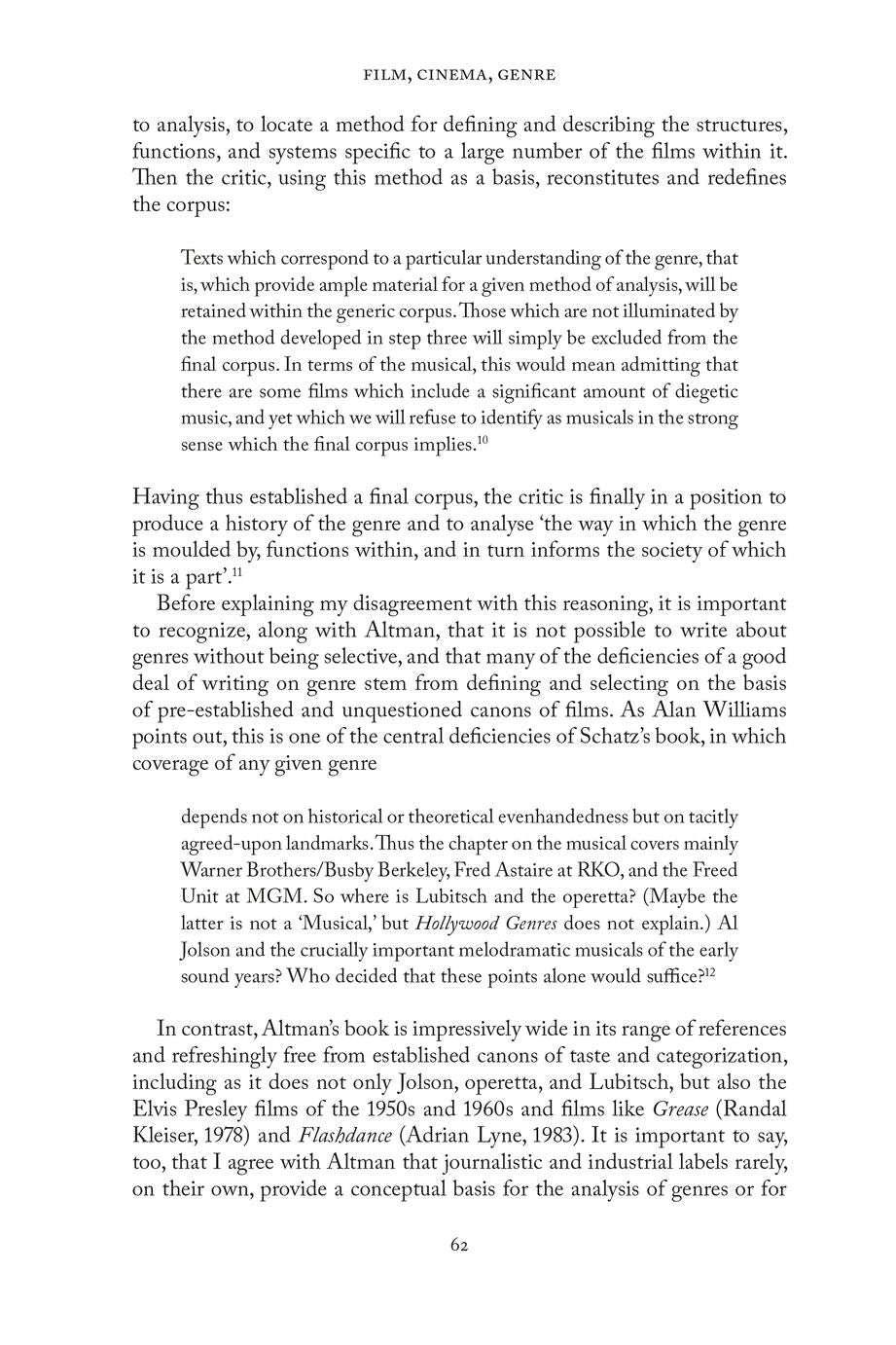
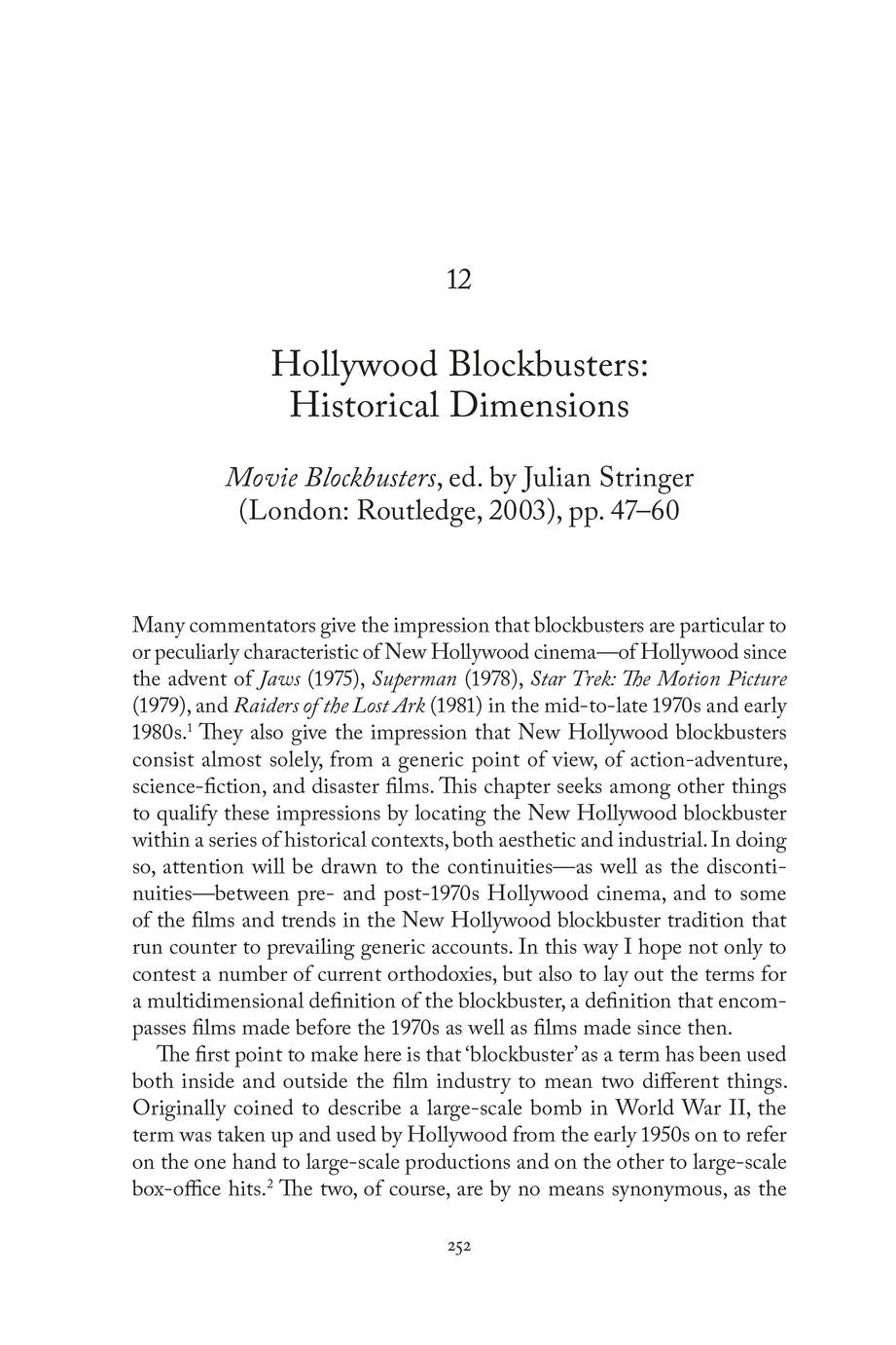
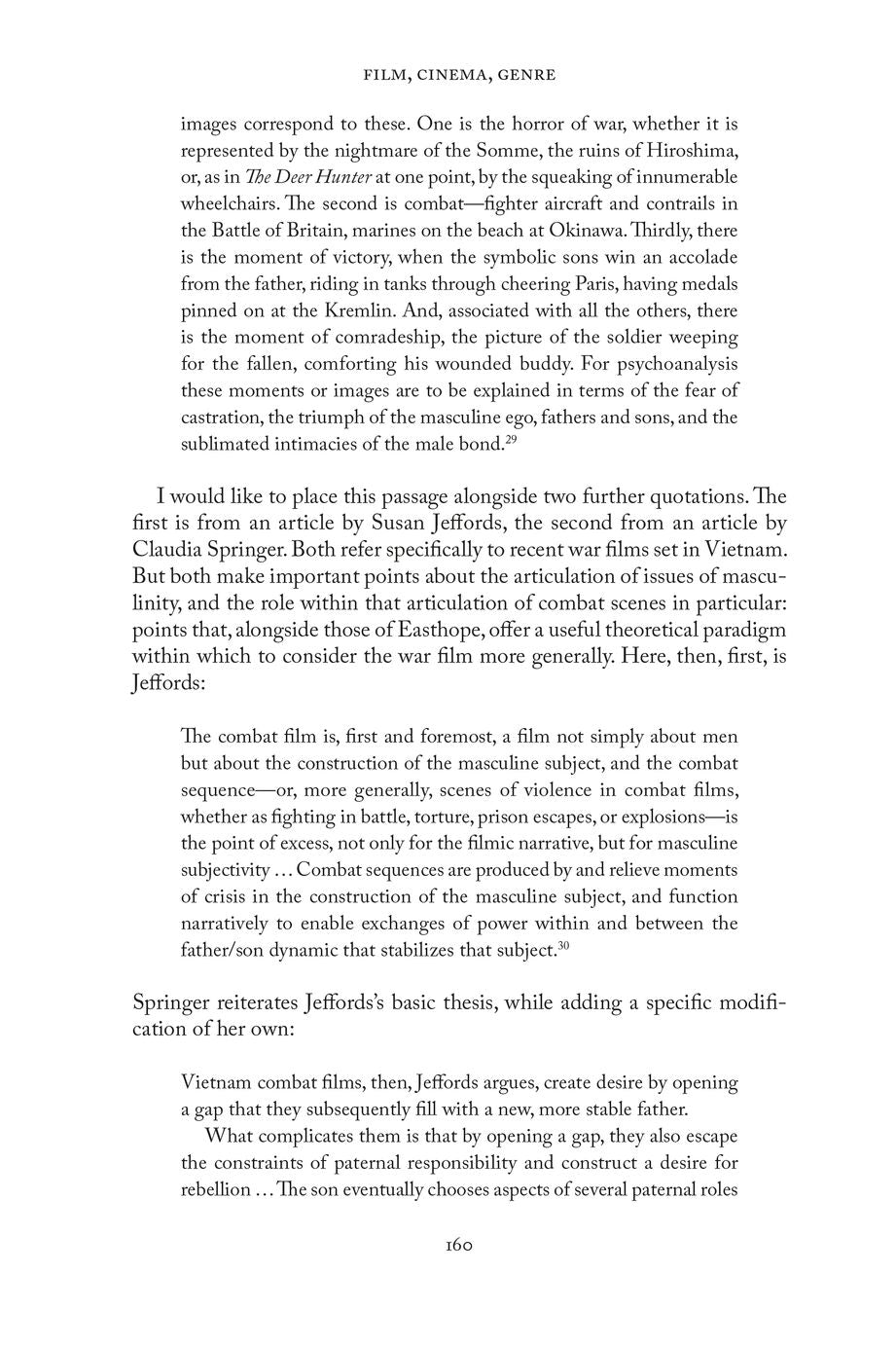
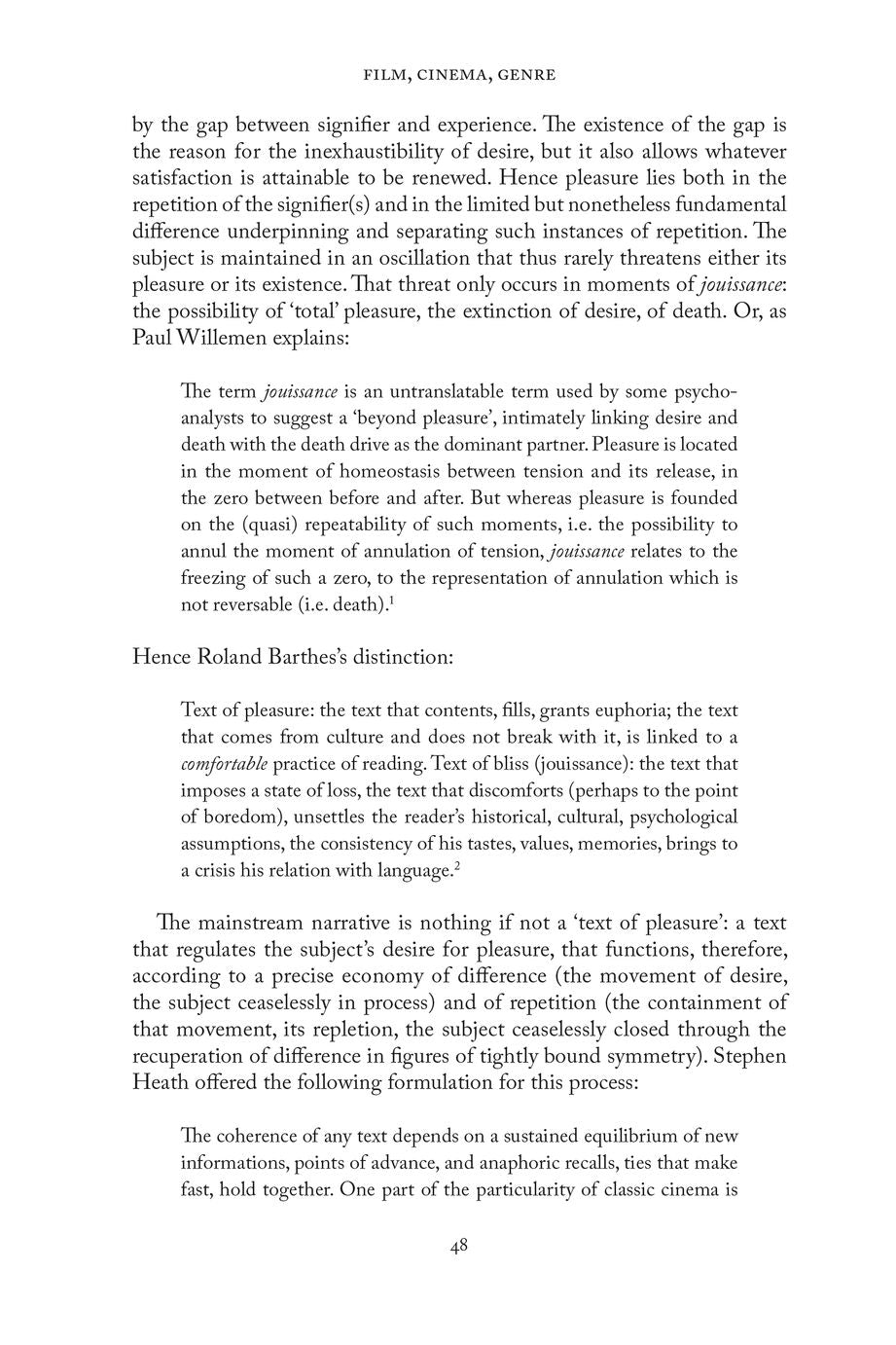
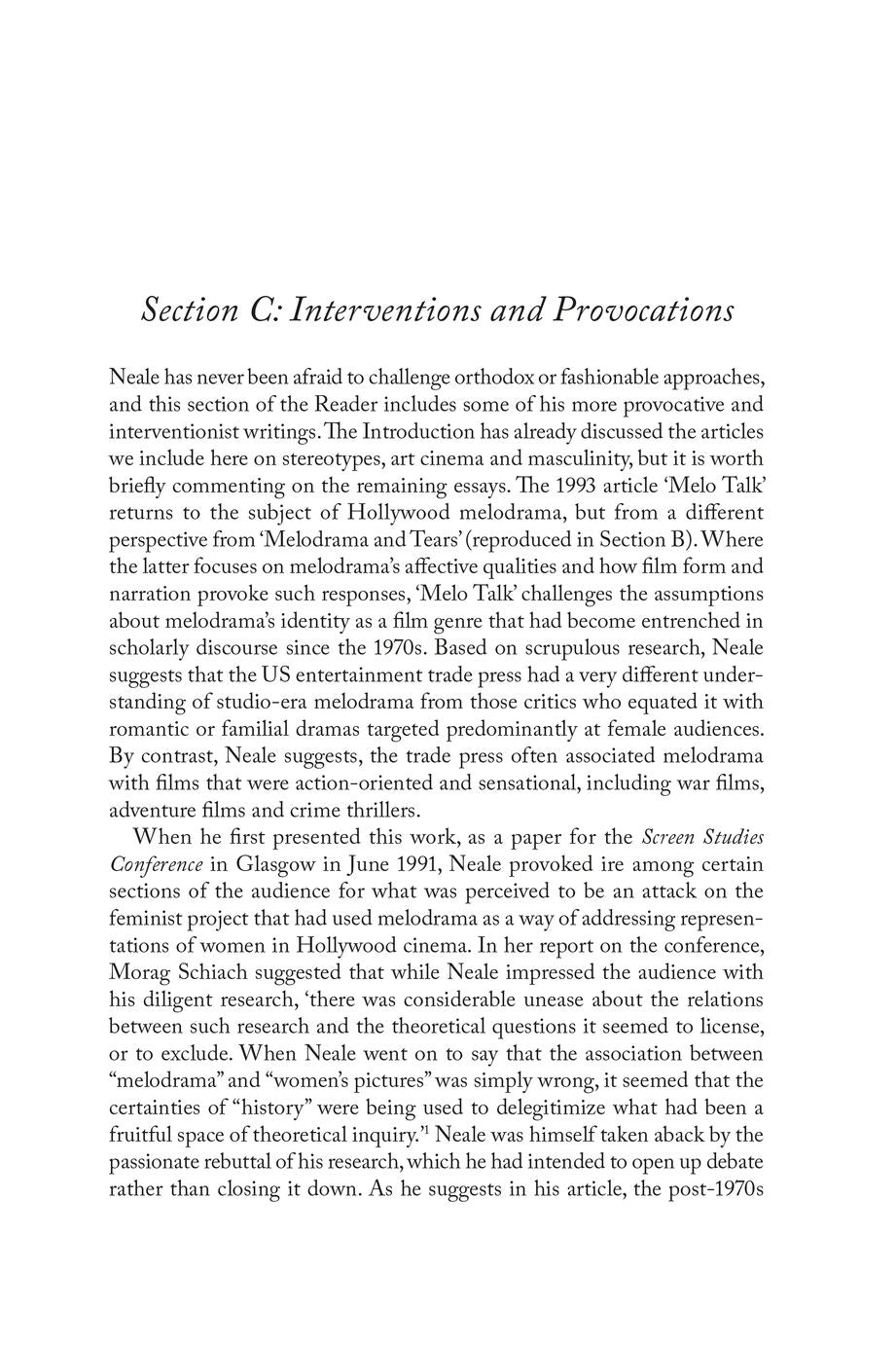
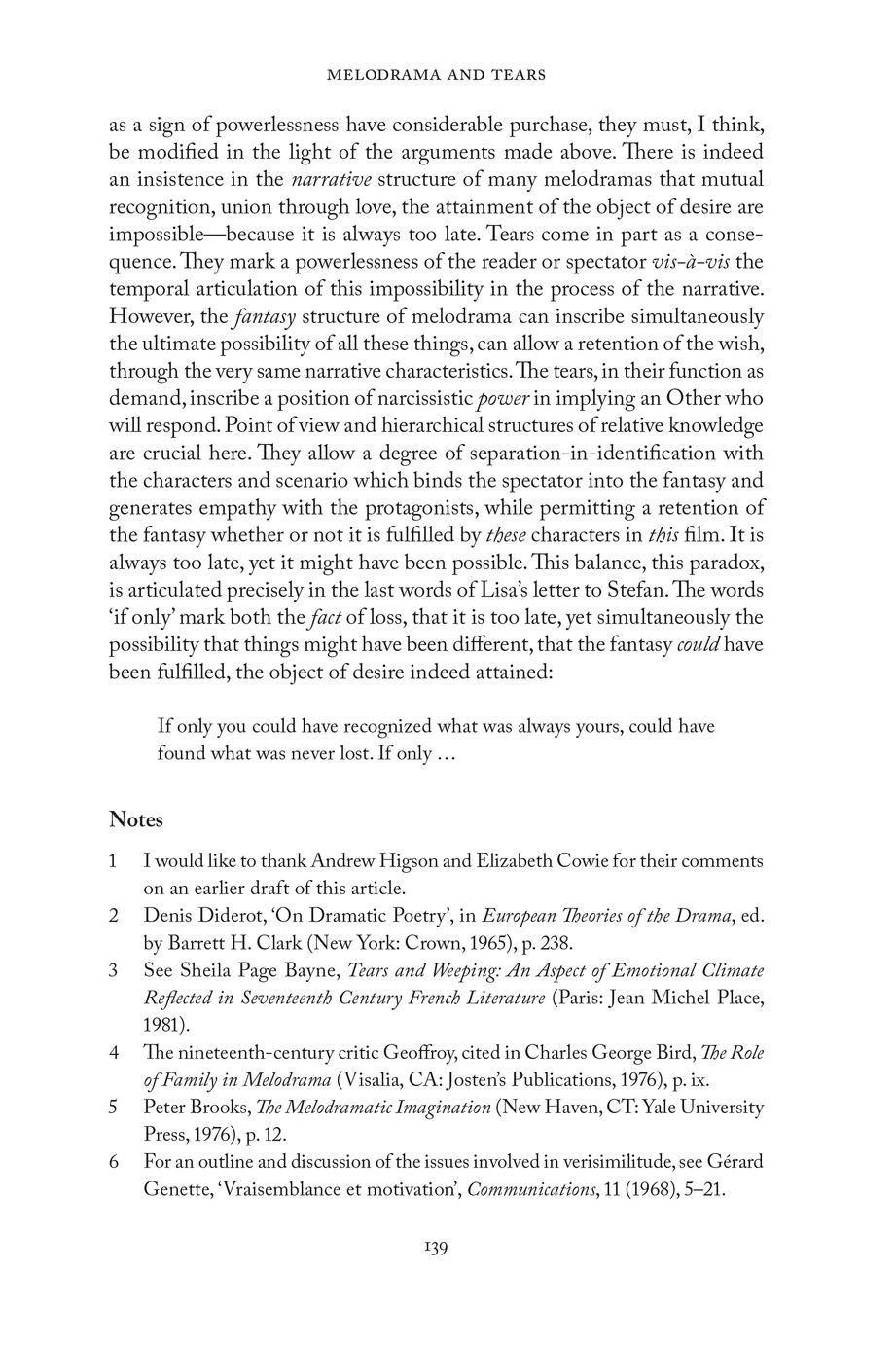
- 376 Pages
This book brings together key works by pioneering film studies scholar Steve Neale. From the 1970s to the 2010s Neale’s vital and unparalleled contribution to the subject has shaped many of the critical agendas that helped to confirm film studies’ position as an innovative discipline within the humanities.
Although known primarily for his work on genre, Neale has written on a far wider range of topics. In addition to selections from the influential volumes Genre (1980) and Genre and Hollywood (2000), and articles scrutinizing individual genres – the melodrama, the war film, science fiction and film noir – this Reader provides critical examinations of cinema and technology, art cinema, gender and cinema, stereotypes and representation, cinema history, the film industry, New Hollywood, and film analysis. Many of the articles included are recommended reading for a range of university courses worldwide, making the volume useful to students at undergraduate level and above, researchers, and teachers of film studies, media studies, gender studies and cultural studies.
The collection has been selected and edited by Frank Krutnik and Richard Maltby, scholars who have worked closely with Neale and been inspired by his diverse and often provocative critical innovations. Their introduction assesses the significance of Neale’s work, and contextualizes it within the development of UK film studies.
DOI: https://doi.org/10.47788/YRCC6901
This Reader brings together for the first time key works by Steve Neale, one of the founding figures of UK film studies. It includes selections of his influential writing on genre, together with other critical work encompassing film analysis, representation, cinema history, technology, and the film industry.
The book charts Neale’s intellectual development over the course of his career, as he subjected his own earlier assumptions to critique and revision, serving as an original account of disciplinary change over time through the prism of one of its key actors.
Sheldon Hall, Sheffield Hallam University
The book serves as a handbook of methods of analysis – archival work involving print culture, “distant” readings of large bodies of film, close textual analysis, theoretical polemics. Neale’s work provides some of the best examples of each of these methods: a “manual” of sorts in film studies.
Will Straw, McGill University, Montreal, Canada
List of Illustrations
Acknowledgements
Steve Neale and Film Studies: An Introduction
Section A: Beginnings
1 The Reappearance of Movie
Review in Screen, 16.3 (1975), 112–15
2 Personal Views
Review in Screen, 17.3 (1976), 118–22
3 The Invention of Cinema
Chapter 3 of Cinema and Technology: Image, Sound, Colour (London: Macmillan, 1985)
Section B: Genre(s)
4 Genre
Chapter 3 of Genre (London: British Film Institute, 1980)
5 Questions of Genre
Screen, 31.1 (1990), 45–66
6 Genre and Hollywood
Chapter 7 of Genre and Hollywood (London: Routledge, 2000)
7 Melodrama and Tears
Screen, 27.6 (1986), 6–23
8 Aspects of Ideology and Narrative Form in the American War Film
Screen, 32.1 (1991), 33–57
Section C: Interventions and Provocations
9 Art Cinema as Institution
Screen, 22.1 (1981), 11–40
10 Masculinity as Spectacle: Reflections on Men and Mainstream Cinema
Screen, 24.6 (1983), 2–17
11 Melo Talk: On the Meaning and Use of the Term ‘Melodrama’ in the American Trade Press
The Velvet Light Trap, 32 (1993), 66–89
12 Hollywood Blockbusters: Historical Dimensions
Movie Blockbusters, ed. by Julian Stringer (London: Routledge, 2003), pp. 47–60
Section D: Film Analysis
13 Issues of Difference: Alien and Blade Runner
Fantasy and the Cinema, ed. by James Donald (London: British Film Institute, 1989), pp. 213–23
14 Narration, Point of View and Patterns in the Soundtrack of Letter from an Unknown Woman
Style and Meaning: Essays in the Detailed Analysis of Film, ed. by John Gibbs and Douglas Pye (Manchester: Manchester University Press, 2005), pp. 99–107
15 Gestures, Movements and Actions in Rio Bravo
Howard Hawks: New Perspectives, ed. by Ian Brookes (London: Palgrave/British Film Institute, 2016), pp. 110–21
16 The Art of the Palpable: Composition and Staging in the Widescreen Films of Anthony Mann
Widescreen Worldwide, ed. by John Belton, Sheldon Hall and Stephen Neale (New Barnet: John Libbey, 2010), pp. 91–106
17 ‘I Can’t Tell Anymore Whether You’re Lying’: Double Indemnity, Human Desire and the Narratology of Femmes Fatales
The Femme Fatale: Images, Histories, Contexts, ed. by Helen Hanson and Catherine O’Rawe (Basingstoke: Palgrave Macmillan, 2010), pp. 187–98
Steve Neale Bibliography
Index
- 376 Pages
- 45 Black & white illustrations







